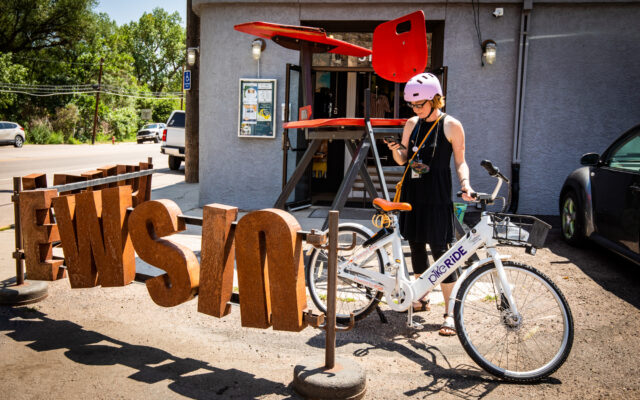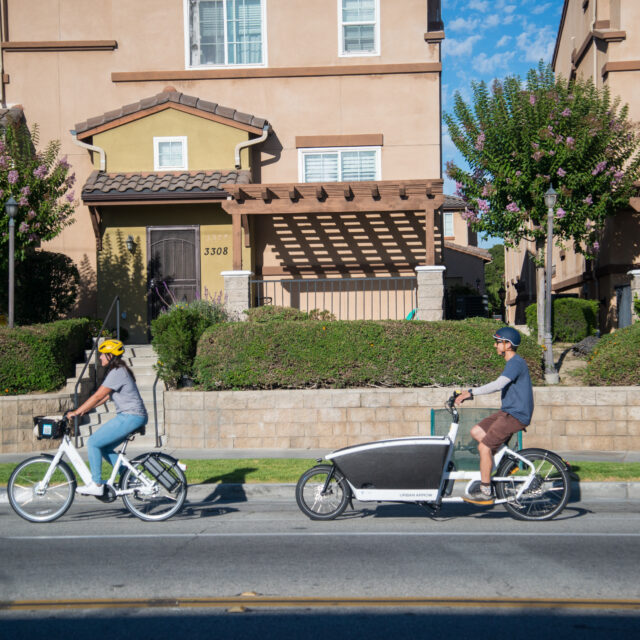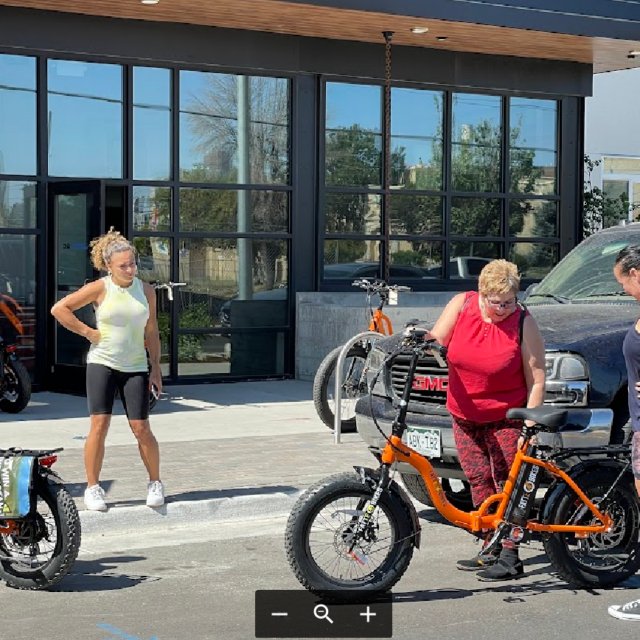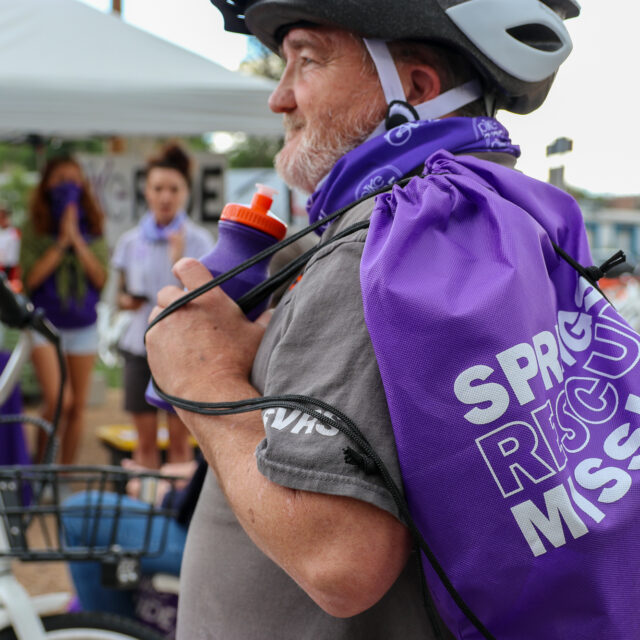Colorado Springs to Launch an E-Bike Leasing Program
by Kiran Herbert, Communications Manager
May 24, 2023
Thanks to a grant from the Colorado Energy Office, the nonprofit bike share operator PikeRide will begin offering low-cost, monthlong access to electric bicycles.

In June 2020, the Colorado Energy Office committed $500,000 towards a pilot program aimed at increasing access to electric bicycles for low-income essential workers. As part of that initiative, which began in Denver and grew to include partner organizations across the state, just under 250 electric bikes were made available to frontline workers with limited access to other forms of transportation.
While the Boulder-based program distributed e-bikes in the form of BCycle bike share memberships, most of the programs provided frontline workers with their own personal e-bike. Then, in 2022, Denver’s own wildly popular e-bike incentive program provided residents with a discount on an e-bike purchase, and the discount was significantly greater for those making below 60% of the state’s median income. Still, Jolie Nesmith, then the executive director of PikeRide, Colorado Springs’ bike share nonprofit, watched Denver’s program roll out and immediately thought of the barriers to accessing it.
“To get a rebate you have to sit by a computer right at 8 am before they sell out, and then once you have the bike you have to pay to maintain it,” says Nesmith. “You have to be fairly privileged to get one.”
While the data shows that many rebate recipients were low-income and that ridership levels were overall high, Nesmith also questioned whether or not some people were a bit more fairweather with their bicycling habits, riding some months and storing their e-bikes in their garage for the rest of the year. All of this got her thinking: How could bike share evolve to serve those who needed a consistent form of transportation at their disposal, but who didn’t want to maintain an e-bike or didn’t have a safe place to store it? She called her contacts at Drop Mobility, the folks behind PikeRide’s bikes and software, and pitched her idea.
“We started working together to create a bike share program that’s essentially a leased bike, where the user would still have access to us as an organization and our super utilitarian bikes,” says Nesmith.
As Drop Mobility got creative on the backend to see what was possible, Nesmith decided to apply for a grant from the Colorado Energy Office (CEO) to fund the program. PikeRide ultimately received a $164,400 grant, which come July, will make 50 electric bikes available for low and moderate-income individuals to lease for $25 a month. Known as PikeRide +, the program will provide participants with their own PikeRide e-bike, a charger and accessories, and access to an e-bike community and Pike Ride staff for maintenance and support.
“There’s so much freedom when you have your own bike,” says Nesmith, adding that participants aren’t restricted in time, use, or location. “We don’t have enough PikeRide hubs around town for everybody to have easy access to a bike — this solves that problem and removes a ton of barriers.”
The program also solves the issue of maintenance, which comes up time and again as a major barrier for low-income individuals owning their own bikes. All PikeRide + users will have access to a separate user app where they’ll be able to report issues, as well as use the same smart lock technology as PikeRide’s other bikes to lock up the bike wherever they want, including on the street. This is ideal for individuals living in apartments with limited storage space. What’s more, users can lease another battery so that they can take one off and charge it without losing the use of their vehicle.
Applications for PikeRide + will open June 1, and at least initially, will be limited to individuals living in the Mosaica housing development and the 80916 zip code. Both areas are located in the southeastern part of Colorado Springs and were chosen because they’re majority lower-income, communities of color that have been historically underserved. Nesmith anticipates the first 50 spots filling up fast with individuals from these two geographic areas (people from all across the city will be able to apply on June 1 but those outside the target areas will be added to a waitlist). Should any participant choose to stop using the service for any reason — say they move away or don’t want to bike in December — the leasing structure will allow another user to take their bike.
“We’re really targeting those that need access to a mode of transportation that’s reliable, consistent, and inexpensive,” says Nesmith.
Participants who might not feel comfortable on an e-bike or riding at all can note their experience level when they sign-up. That way, when the bike is delivered to them, PikeRide staff will provide a hands-on tutorial catered to their needs, whether they’re just learning to ride or need help navigating the PikeRide + app (while there is a way for folks to pay in cash, they’ll still need to have a smartphone to participate). PikeRide staff plan on also tabling and holding demo rides at Mosaica and the Southeast Armed Forces YMCA.
PikeRide will also be partnering with the folks at the SRAM corporate offices in Colorado Springs to solicit volunteers and lead monthly rides, as well as with the Trails and Open Space Coalition. Through these community rides, participants will have the opportunity to explore their neighborhoods in a group setting, learning how to safely connect to trails and other neighboring areas.
As Nesmith transitions away from her role as executive director, she’s proud to have been able to shepherd this program from ideation through to implementation. As more cities begin to see the benefits of electric bikes for both equity and the environment — and as e-bike incentive programs continue to grow accordingly — PikeRide + is a prime example of how bike share programs can pivot to serve even more people with substantially different mobility needs.
“We hope our program serves as an inspiration for others,” says Nesmith. “Right now, a leased bike share program is how you get in on this space.”
The Better Bike Share Partnership is funded by The JPB Foundation as a collaboration between the City of Philadelphia, the National Association of City Transportation Officials (NACTO), and the PeopleForBikes Foundation to build equitable and replicable bike share systems. Follow us on LinkedIn, Facebook, Twitter, and Instagram, or sign up for our weekly newsletter. Have a question or a story idea? Email kiran@peopleforbikes.org.



